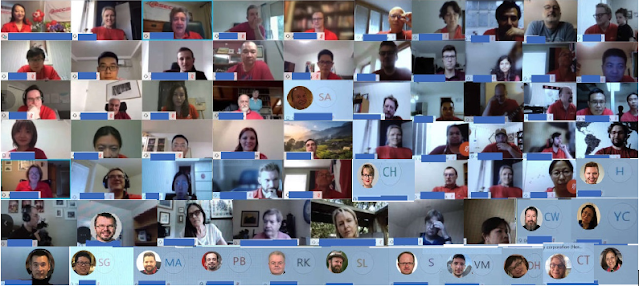-

FIPS 140-3 Submission Scenarios
FIPS 140-3 has a more detailed set of submission scenarios than FIPS 140-2. It can be daunting to find the right scenario for your situation. The flow diagram below provides an overview and helps to explain the different scenarios. More information can be found in the FIPS 140-3…
-

Happy Valentine’s Day
atsec information security wishes all colleagues, customers, suppliers, and partners a Happy Valentine’s Day filled with joy, happiness, and security!
-

Distinguishing encrypted from non-encrypted data
Our colleague Quentin Gouchet, together with Eric Järpe, authored an article on distinguishing encrypted from non-encrypted data. We invite you to read the article here. Introduction:The discrimination of encrypted data from other kinds of data is of interest in many areas of application. For instance for making other…
-

It is atsec’s 22nd Anniversary!
A big hug to you all. Happy Birthday! “atsec is a big hug to the whole team represented in the at-sign @ of our logo!” audaces fortuna juvat “An idea is nothing more or less than a new combination of old elements,” James Webb. atsec, is: “A new…
-

Happy Holidays and a Happy New Year from atsec
This year the motto for our Holiday greeting is “Bridges”, as it symbolizes much of what we do in our daily work. We bridge the difficult terrain of international and national standards between vendors and government agencies, so both parties can reach their respective goals. We bridge the…
-

Is working for atsec an option for me?
I’ve been with atsec for more than two years, and I am happy to be on board. But when I joined, I had some concerns. Coming from companies with thousands of employees and revenues in the billions, joining a company with less than one hundred employees worldwide and…
-

Reasonable or just possible?
A few days ago, I returned from my first business trip in months. I didn’t travel because I had to, but because I decided that it would be better to be on-site instead of handling the project remotely. And we are handling a lot of projects remotely at…
-

Sample Size in NIST SP800-90B
We invite you to watch this presentation by Richard Fant on Sample Size in SP800-90B.
-

Do Remote Site Visits Work?
While the home office has become a normality for many IT companies and operations during the pandemic, the requirements for security evaluation, certifications, accreditations, and other approvals have remained constant. Site visits at the development sites are required to achieve the approval of certification and accreditation. How could…
